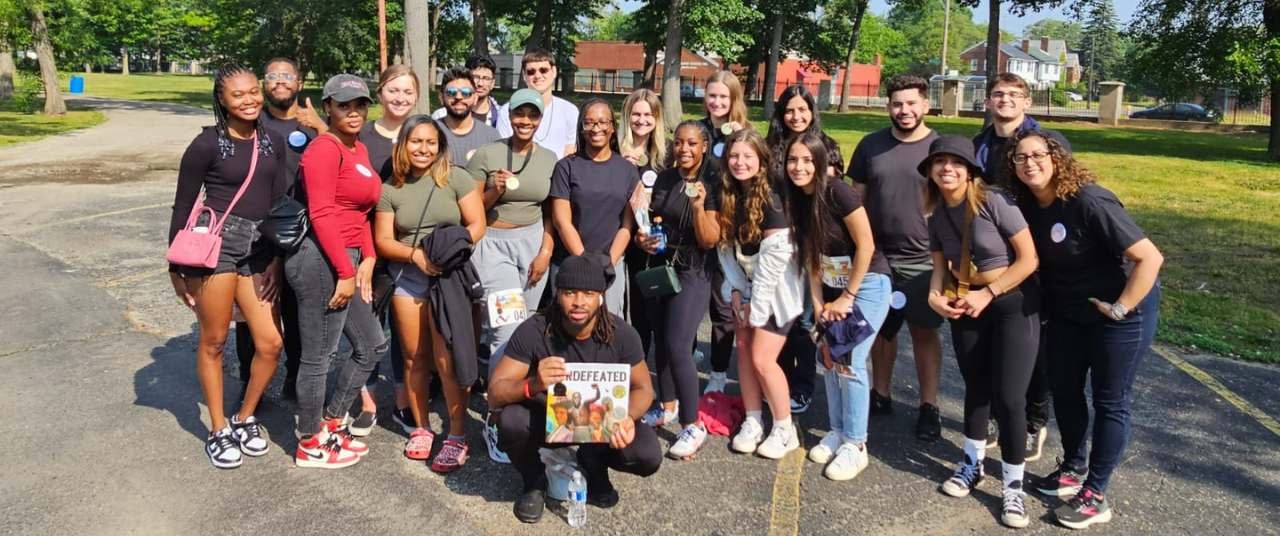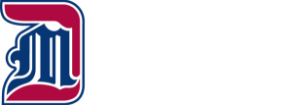Summer Enrichment Program (SEP): Early Admissions Pathway

The Summer Enrichment Program (SEP) is a 4-week residential Early Admissions program designed to prepare and support talented HURE students pursuing a career in dentistry.
Beginning Summer 2026, SEP will serve as an early admissions pathway offering conditional acceptance to the University of Detroit Mercy School of Dentistry, for selected participants. SEP Students are interviewed during the program and may receive conditional admission to the upcoming first-year dental class upon successful completion of SEP requirements.
SEP combines academic enrichment, professional development, mentorship, and hands-on dental experiences to support students’ transition from pre-dental education to dental school applicants. Upon successful completion of the program and completion of specific admissions requirements, students receive a conditional admission to the University of Detroit Mercy School of Dentistry.
SEP is a fully funded residential program that includes:- Free housing
- DAT preparation at no cost to participants
- A student stipend to support food and personal expenses
- Personalized guidance through the dental school application process
- Admissions, interview, and financial aid workshops
- Hands-on Simulation Laboratory activities
- Clinical observations and exposure to patient care
- Faculty-led academic enrichment sessionPeer mentorship with current dental students
- Professional development and cultural competency seminars
- Networking with students, faculty, alumni, and dental professionals
- Social and cultural activities, including group outings in Detroit
Eligibility & Program Qualifications
Applicants must:- Be college seniors or recent graduates (Juniors are not eligible)
- Be U.S. citizens or permanent residents
- Identify as one or more of the following educational, socially or economically disadvantage OR underrepresented minorities in the field of dentistry
- Must be fully vaccinated against the following: Hepatitis B, Tetanus, Diphtheria and Pertussis (TdaP), MMR (Measles, Mumps and Rubella), Varicella and Covid-19
- Be on track to complete all required prerequisite coursework
- Demonstrate a strong interest in dentistry and serving underserved populations
- Minimum GPA:
- 3.0 Science GPA and 3.0 Overall GPA (if AADSAS application exists)
- If no AADSAS application, GPA is calculated GPA calculated based on prerequisite coursework only
- Required / Expected Coursework:
- 8 credit hours of General Biology (with labs)
- 8 credit hours of General Chemistry (with labs)
- 8 credit hours of Organic Chemistry (with labs)
- 8 credit hours of General Physics (with labs)
- 3 credit hours of Microbiology
- 3 credit hours of Biochemistry
- 6 credit hours of English/Composition
- Choose 2 of 3
- 3 credit hours of Anatomy
- 3 credit hours of Physiology
- 3 credit hours of Immunology
- Additional upper-level science coursework is strongly encouraged.
Up to two prerequisite courses may be pending at the time of application, with proof of planned completion.
The application deadline is March 6, 2026, by 5 p.m. Eastern Standard Time (EST).
The online application AND all required materials must be received by the deadline.
-
Frequently Asked Questions
What is a typical day like at SEP?
Days at SEP will vary, but typically involve a morning spent in DAT Preparation Course at the School of Dentistry, a lunch break, study time, and scheduled rotations to shadow in the Detroit Mercy Dental clinics. Generally, SEP participants engage in planned activities from 8:30 a.m. to 5 p.m. SEP includes workshops on study skills, personal statements, interview preparation, and more. Participants can interact with faculty, staff, administrators, and current students throughout their time at Detroit Mercy Dental. During most evenings, participants spend a significant amount of time studying for the DAT on their own or in small groups.
What costs are covered by the program?
Included in SEP at no cost to participants are: housing, transportation to/from campus and required events, DAT preparation course, and a financial stipend. Participants stay in a dormitory, usually with a roommate. Some meals are provided; participants are expected to cover the remainder of meals with the financial stipend included with the program.
Who is the ideal student for SEP?
Participants who benefit the most are those who are ready to fully commit to the program and put in the necessary study time. SEP has a heavy focus on DAT preparation, so ideally, participants take the DAT (whether for the first time or as another attempt) following the program. SEP involves advising to help students decide whether they are ready to apply for dental school, but students in SEP should meet the basic academic requirements for admission to dental school. Students should be ready to apply to dental school either immediately following SEP or in the following cycle.
Can I still apply if I haven’t taken all the required prerequisite courses?
Students are eligible to participate in SEP if they have taken at least one semester of each of the following at a college level: Biology, Inorganic Chemistry, Organic Chemistry, Physics, Math, and English. We recommend two semesters of Biology with labs, two semesters of Inorganic Chemistry with labs, and two semesters of Organic Chemistry with labs, if possible. Above all, we want to ensure participants are ready to take the DAT right after the program and have completed the necessary coursework to lay the foundation for DAT preparation.
Do I have to participate in the entire duration of the program to apply? Can I miss a few days or a weekend?
It is a program requirement that participants attend the entire program. There are a variety of social events scheduled on Saturdays; participants are free to spend Sundays as they like. We do sometimes excuse absences on Saturdays for SEP participants to attend important events, but this must be approved in advance.
Can I have a job or take classes during SEP? Can I live off campus?
No. SEP is a full-time, immersive program that also requires evening study. This is a time when students can focus fully on preparing to apply to dental school. All participants stay together in the dormitories, allowing everyone to focus fully on the program. The 2026 Summer Enrichment Program will take place from May 27 to June 26, 2026.
